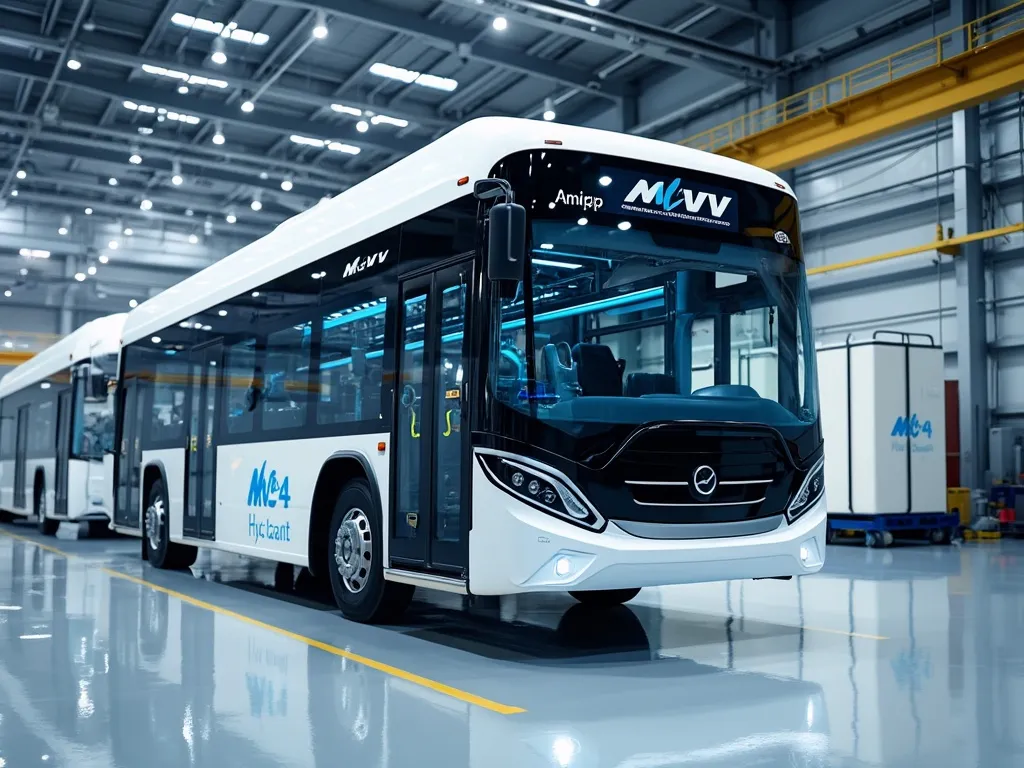Hexagon Purus Partners with Egypt's MCV: Accelerating Hydrogen Mobility in North Africa
Key Ideas
- Hexagon Purus secures its first deal in Egypt with Manufacturing Commercial Vehicles (MCV) to supply high-tech hydrogen storage systems for new hydrogen-powered buses, signaling a significant move into North Africa's hydrogen mobility sector.
- Egypt's abundant solar power potential and strategic location position it as a key player in becoming a major green hydrogen hub, with collaborations like this paving the way for sustainable transportation infrastructure development.
- MCV, a prominent Egyptian vehicle manufacturer, expands its sustainability efforts by incorporating hydrogen-powered buses into its range, aligning with the country's goals to reduce emissions and modernize transit systems.
- The partnership highlights the increasing global interest in hydrogen mobility, showcasing the practical application of hydrogen fuel cells in real-world scenarios and driving momentum towards establishing hydrogen infrastructure worldwide.
Norwegian specialist Hexagon Purus has finalized a groundbreaking deal with Egypt's Manufacturing Commercial Vehicles (MCV) to supply advanced hydrogen storage systems for MCV's new hydrogen-fueled buses, marking Hexagon Purus' entry into the burgeoning hydrogen mobility sector in North Africa. The collaboration underscores Egypt's potential to emerge as a leading green hydrogen hub due to its solar energy resources and strategic geographical position. By introducing cutting-edge hydrogen technology into public transportation, such partnerships play a pivotal role in advancing sustainable transportation initiatives.
Hexagon Purus specializes in Type 4 composite pressure vessels that provide lightweight yet durable storage for high-pressure hydrogen, ideal for heavy-duty city buses. MCV, a prominent player in Egypt's automotive industry, is diversifying its sustainable transportation portfolio by integrating hydrogen fuel cells into its buses, aligning with the country's environmental objectives and the global push for clean energy solutions.
The move comes at a crucial time when Egyptian cities are under increasing pressure to address emissions, modernize transit systems, and combat air pollution. The hydrogen buses not only cater to local needs but also signify Egypt's potential to export clean transport technology to other regions. This partnership contributes to the larger framework of global collaboration in hydrogen mobility, demonstrating the practicality and effectiveness of hydrogen fuel cells in real-world applications.
As Egypt aims to establish itself as a significant player in the green hydrogen sector, initiatives like these serve as tangible examples of the transition towards sustainable practices. The collaboration between Hexagon Purus and MCV exemplifies the growing demand for hydrogen storage solutions and underscores the global shift towards embracing hydrogen as a viable energy source for transportation. This partnership not only accelerates the adoption of hydrogen technology in Egypt but also sets a precedent for other countries looking to embrace clean energy alternatives in their transportation systems.
Topics
Fuel Cells
Renewable Energy
Environmental Impact
International Collaboration
Partnership
Public Transport
Sustainable Transportation
Latest News
